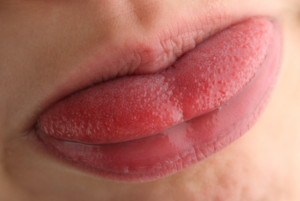 Dental care is an area of health that is often overlooked in older adults. Despite recommendations for regular dental care – even among those with full dentures – less than one-third of adults aged 65 and older in the U.S. had dental insurance in 2017. Tongue cleaning is a particular part of dental care that people of all ages are less likely to prioritize than teeth cleaning and for which more research is needed to determine its importance.
Dental care is an area of health that is often overlooked in older adults. Despite recommendations for regular dental care – even among those with full dentures – less than one-third of adults aged 65 and older in the U.S. had dental insurance in 2017. Tongue cleaning is a particular part of dental care that people of all ages are less likely to prioritize than teeth cleaning and for which more research is needed to determine its importance.
A new study conducted in Japan and published the Journal of Oral Rehabilitation has investigated the impact of tongue cleaning on respiratory function in older adults who require care. The 24 study participants spent a year receiving either routine oral care or routine oral care with tongue cleaning. These subjects had conditions including cerebrovascular disease and cardiac disease.
Study participants’ respiratory function was assessed before and after treatment using peak expiratory flow rate (PEFR). Other factors that were assessed at these time points included tongue pressure, oral health status, swallowing function, nutritional status, and daily activities.
The results showed that for those who received routine oral care early, both PEFR and tongue pressure declined significantly over the course of the year. By comparison, those who received the additional tongue cleaning care maintained both their PEFR and tongue pressure. Based on these findings, the authors conclude that tongue cleaning may provide a beneficial way to maintain both tongue and respiratory function in older adults who require care.
While people – including older adults – tend to clean their teeth, tongue cleaning is much less common. More research that helps to demonstrate the importance of tongue cleaning, especially for preventing specific conditions within subgroups could help to not only improve our understanding of the value of tongue cleaning but also in helping us to increase awareness about its importance.
Reference
Izumi, M. et al. (2021). Tongue cleaning maintains respiratory function in older individuals: A one-year randomized controlled trial. Journal of Oral Rehabilitation, doi: 10.1111/joor.13165.
